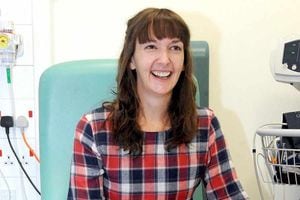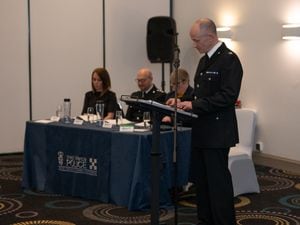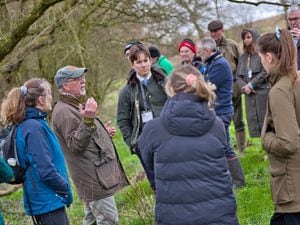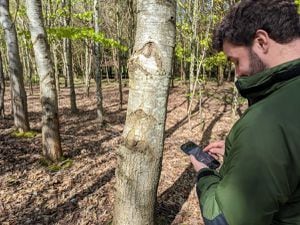Shropshire Ebola doctor's shock as nurse readmitted to hospital
A Shropshire doctor who sat next to Scottish nurse Pauline Cafferkey on her way back from Sierra Leone has spoken of her sadness at hearing she has returned to hospital with Ebola.

Miss Cafferkey, who contracted the disease while working in Sierra Leone last year, is said to be in a "serious condition" after being readmitted to an isolation unit in London.
Dr Martin Deahl travelled to the west African country last year on the same aid mission as Miss Cafferkey, and sat next to her on the flight home just after Christmas. Miss Cafferkey was taken ill shortly after she returned.

Dr Deahl said he was horrified to hear that the illness had returned after she appeared to have made a full recovery.
"I think it's an absolute tragedy," said Dr Deahl, who lives in Field Aston, Newport.
"This poor woman has suffered so much, and she appeared to be so well when she was on the Pride of Britain Awards a couple of weeks ago. It's a terrible blow."
Dr Deahl, from Field Aston, Newport, said it showed that the crisis was far from over.
"There's a lot more about this awful disease that we don't know at the moment," he said.
"To say that the crisis is over is premature to say the least, we're not out of the woods yet.
NHS Greater Glasgow and Clyde confirmed that the virus is still present in Miss Cafferkey's body after being left over from the original infection. although she is not thought to be contagious.
The 39-year-old has been flown back to the isolation unit at the Royal Free Hospital in London.
Bodily tissues can harbour the Ebola infection months after the person appears to have fully recovered.
Miss Cafferkey, from Cambuslang in South Lanarkshire, spent almost a month in the unit at the start of the year.
Dr Emilia Crighton, director of public health for NHS Greater Glasgow and Clyde , said: "Pauline's condition is a complication of a previous infection with the Ebola virus.
"The risk to the public is very low. In line with normal procedures in cases such as this, we have identified a small number of close contacts of Pauline's that we will be following up as a precaution."





